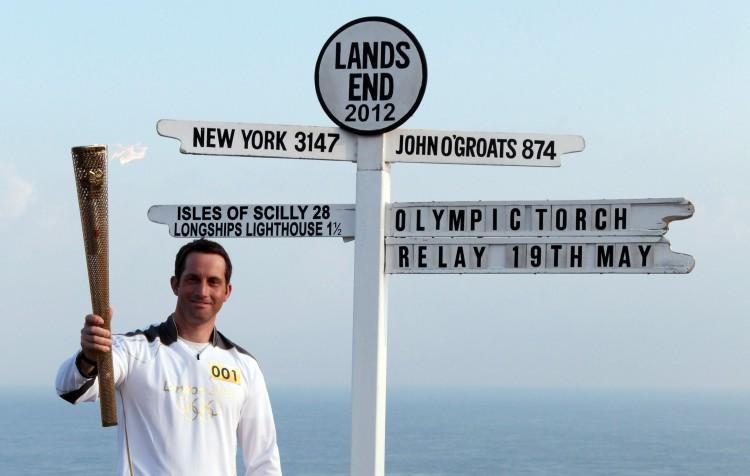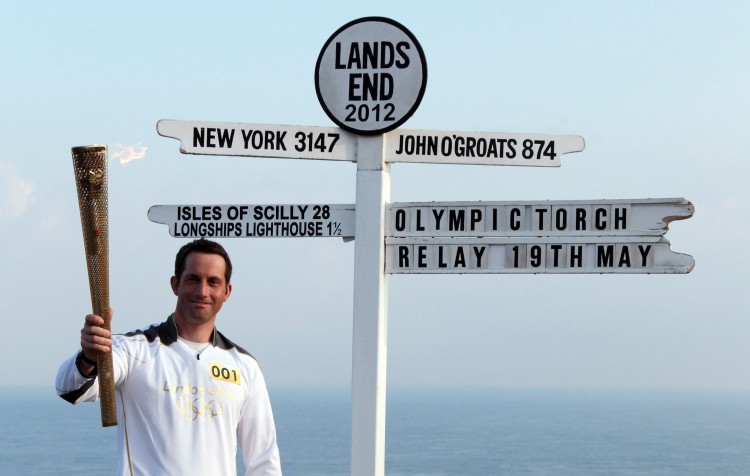From Olympia to London, People Love the Burning Flame
Why does the Olympic flame always fascinate people each time it starts its journey? The answer may be found in the historic symbolism of the conveyance of fire—a central theme of Greek legend.

Olympic gold medal sailor Ben Ainslie is the first London 2012 torchbearer. He sets off from the famous Land's End sign post. Matt Cardy/Stringer/Getty Images Sport
|Updated:







